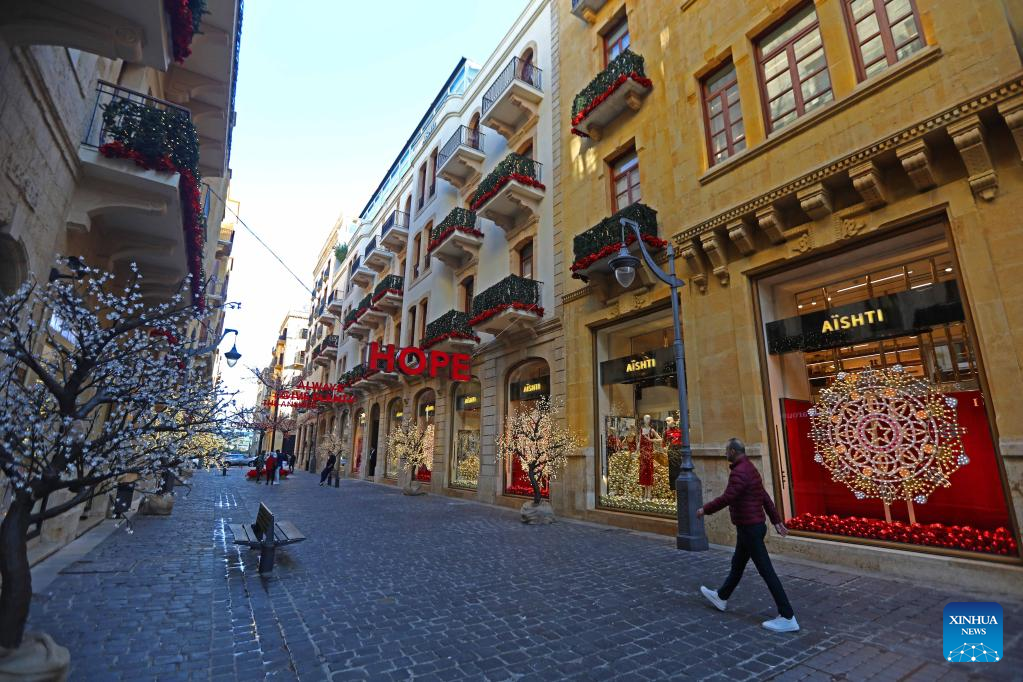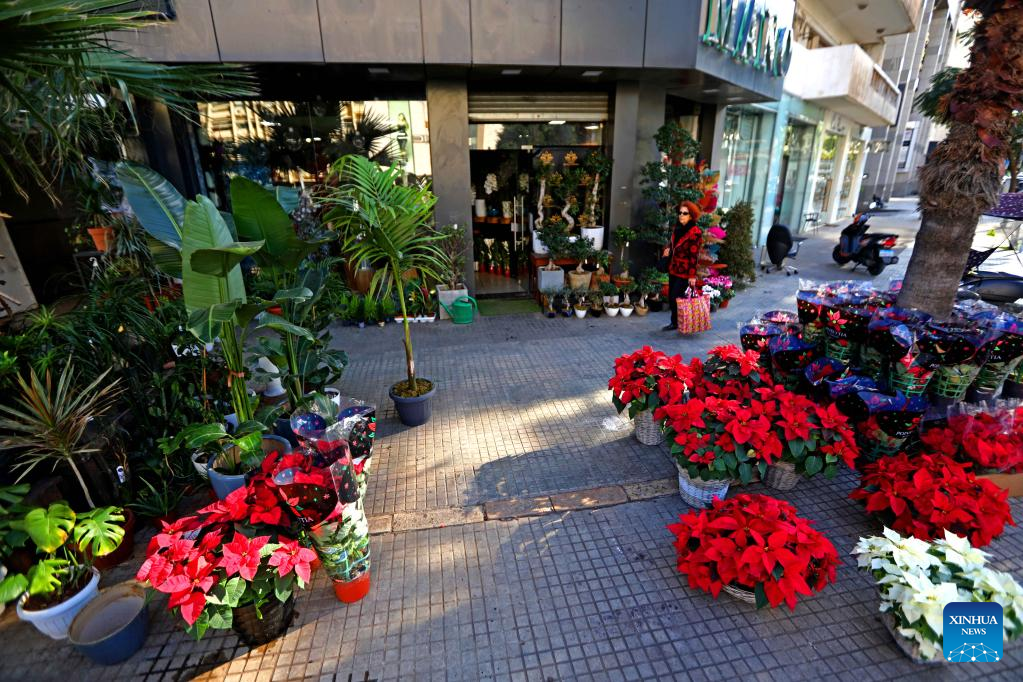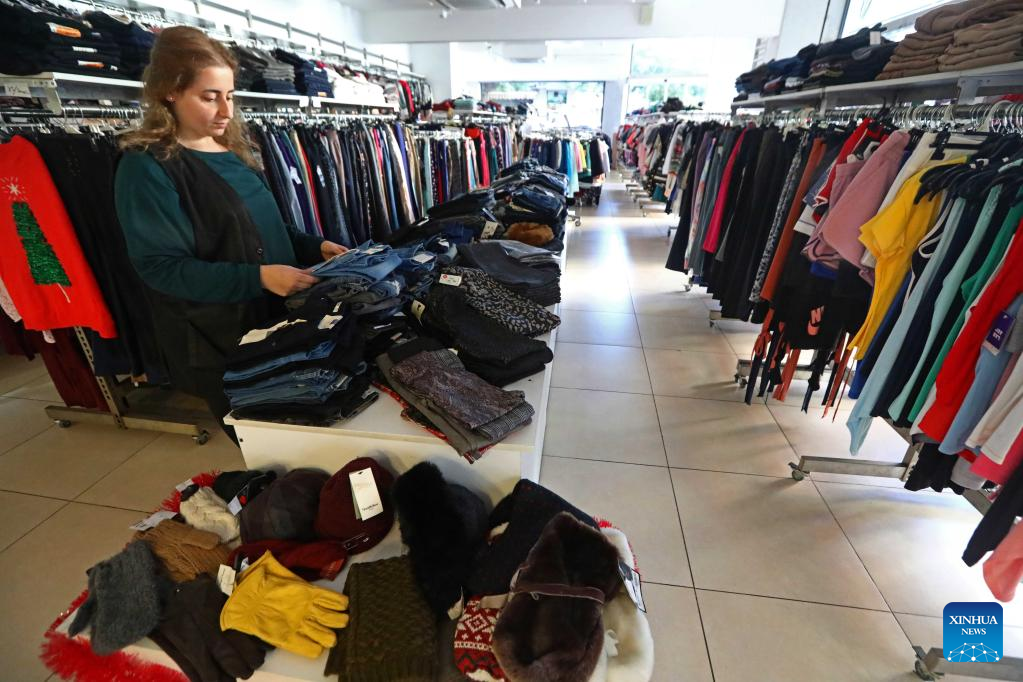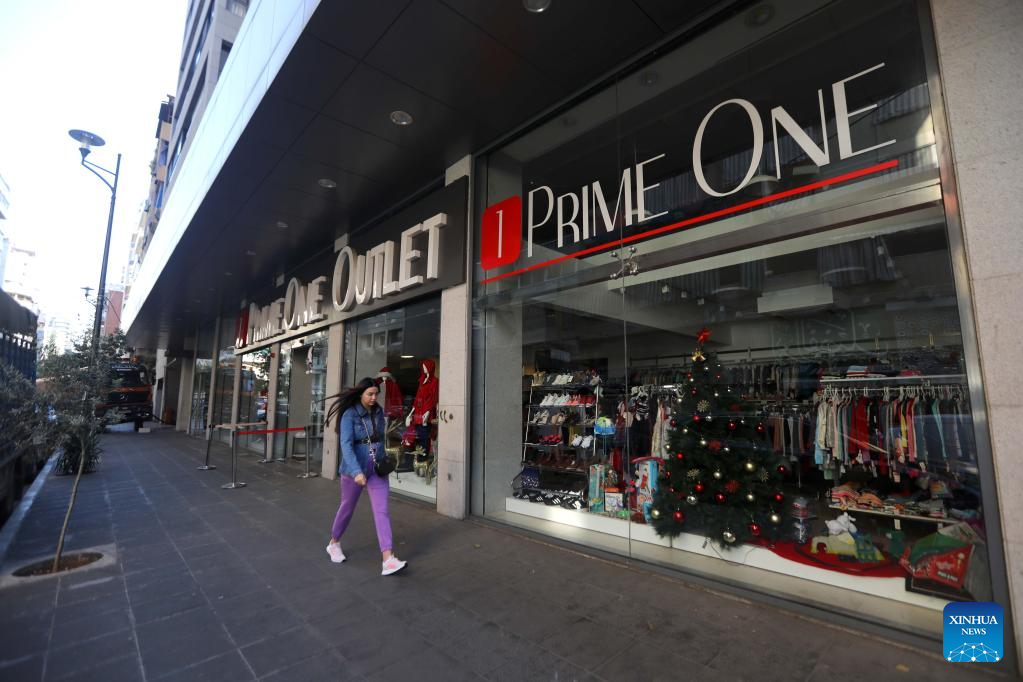Feature: Holiday shopping remains sluggish in Lebanon as economic crisis lingers

A man walks past a store in Beirut, Lebanon, on Dec. 20, 2022. (Xinhua/Bilal Jawich)
BEIRUT, Dec. 20 (Xinhua) -- Hoping to reap a huge profit from the current Christmas season, Ali Harb, a Lebanese clothing store owner in the capital Beirut, has kept his business open daily.
But to his disappointment, Harb usually goes home empty-handed for most of the days ahead of the holiday season. "My sale record has been almost empty since the beginning of this month," Harb told Xinhua.
He blamed the painfully slow business in a traditionally high season on the depreciating Lebanese pound against the U.S. dollar, which has depleted more and more Lebanese of purchasing power.
"A worker paid in the local currency will not pay 200 U.S. dollars or 9 million pounds for a suit when his monthly salary is around 6 or 7 million pounds," Harb said.

A woman walks past a store in Beirut, Lebanon, on Dec. 20, 2022. (Xinhua/Bilal Jawich)
Since October 2019, Lebanon has been facing a steep financial crisis amid a shortage of the U.S. dollar, causing a depreciation of the Lebanese pound by over 90 percent and forcing banks to restrict withdrawal of deposits in both local and foreign currencies.
The financial crisis, worsened by the COVID-19 pandemic and deadly explosions at Beirut's port in August 2020, has plunged over 80 percent of the Lebanese population into poverty, according to the World Bank's estimates.
"Most of the Lebanese people have become incapable of affording luxurious items," Youssef Abou Ghali, owner of Mashio, a clothing store in Hamra, told Xinhua.
Ghali said he was liquidating his shop as he was neither able to withdraw bank savings to cover the daily expenses, nor make enough money to continue running the shop.

A saleswoman arranges trousers at a store in Beirut, Lebanon, on Dec. 20, 2022. (Xinhua/Bilal Jawich)
"I am currently trying to sell my inventory to get some money and feed my children," he said, adding that his business has been very slow even ahead of the holiday season.
Mohammad Khaled, the owner of the Little Silhouette clothing store in Hamra, said that many people avoid holiday purchases this season due to the increase in the customs dollar exchange rate.
"People are aware that prices must have gone up due to the increase in customs duties, so they prefer to cut down on their purchases," Khaled told Xinhua.
Starting on Dec. 1, Lebanese customs authorities has calculated foreign exchange rates on taxes and fees collected from imported goods on the basis of 15,000 Lebanese pounds for per U.S. dollar, up from the longstanding official rate of 1,507 pounds.

A woman walks past a store in Beirut, Lebanon, on Dec. 20, 2022. (Xinhua/Bilal Jawich)
The move came in line with a national currency that has sunk to a historic low of 44,750 pounds for the dollar on the parallel market.
Adnan Rammal, a representative of the trade sector in the Economic and Social Council, told Xinhua that shopping for Christmas this year has dropped by around 80 percent compared to the pre-crisis Christmas season.
Today, only a tiny percentage of the Lebanese population can still afford to buy gifts for the holiday, and even they prefer to spend the money first on essential goods like food, medicines and education, Rammal said.
Thrift stores, known as "baleh" in Arabic, that offer cheap used goods have become more popular in Lebanon at the hard times, he added.
Photos
Related Stories
Copyright © 2022 People's Daily Online. All Rights Reserved.









